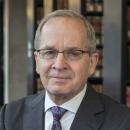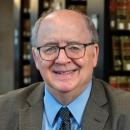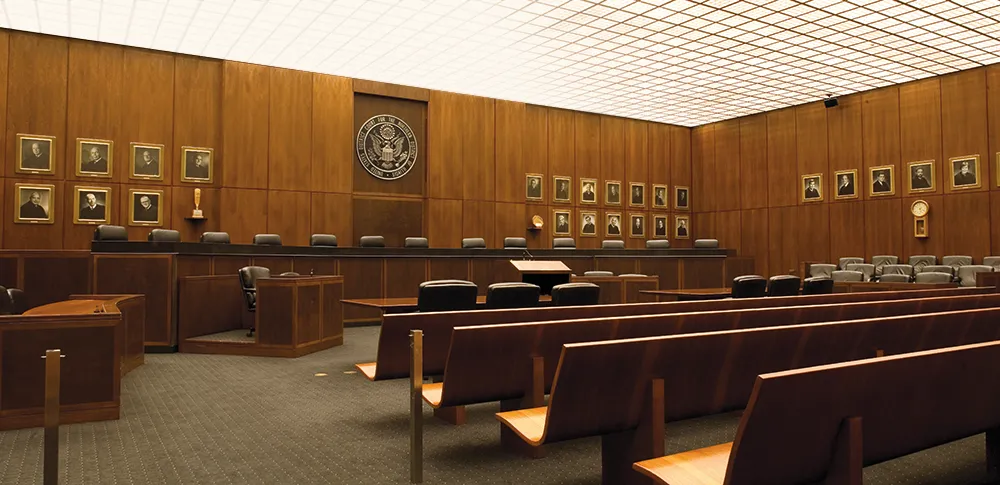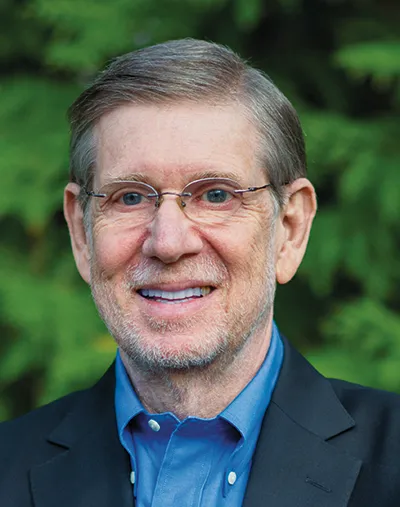Professor Douglas Baird Becomes First Academic to Lead National Bankruptcy Conference

Professor Douglas Baird has been elected to a four-year term as chair of the National Bankruptcy Conference, a nonpartisan organization of lawyers, law professors, and bankruptcy judges that advises Congress on issues related to bankruptcy law. Baird, the University of Chicago’s Harry A. Bigelow Distinguished Service Professor of Law and a member of the Conference since 1993, is the first academic to lead the group.
Baird, a leading expert on bankruptcy law and a former dean of the Law School, previously served as the Conference’s vice chair from 1997 until 2004. Baird’s work includes a one-volume overview of US bankruptcy law, Elements of Bankruptcy, that is now in its sixth edition and was recently translated into Chinese. He has been a director of the American College of Bankruptcy, president of the American Law and Economics Association, and is a fellow of the American Academy of Arts and Sciences.
“Douglas has this rich historical perspective on bankruptcy, and, at the same time, he's done such a good job of remaining involved in cutting-edge issues. His scholarship reflects that,” said Randal C. Picker, the University of Chicago’s James Parker Hall Distinguished Service Professor of Law and the National Bankruptcy Conference’s immediate past vice chair. “As a law professor, you want to be engaged in the world … and to be involved in what’s happening on the ground. And if you’re a bankruptcy person who wants to do bankruptcy policy, this is one of the premier positions in which to do that.”
The nonprofit, self-supporting organization includes about 60 members. It began in the 1930s when Congress gathered some of the leading bankruptcy practitioners and scholars to assist in the drafting of major Depression-era bankruptcy law amendments. In the 1970s, the NBC was instrumental in the enactment of the Bankruptcy Code in 1978. It has been a resource to Congress on every significant piece of bankruptcy legislation since the 1930s.
The group’s work includes writing letters to Congress on statutory issues that affect the bankruptcy code, testifying before Congress, issuing official position statements, and more. Bankruptcy law, Baird said, is complex and requires precision—and the NBC offers lawmakers objective, expert guidance to ensure that policy goals can be met as intended.
“When you’re drafting a statute related to bankruptcy law, it’s easy to get stuff wrong—it’s not metaphysical statutory interpretation, but getting it technically right,” Baird said. “We might say, ‘You want this outcome, but you have to have to understand that this language might do other stuff, too.’”
The NBC played a major advisory role in developing the Small Business Reorganization Act that went into effect last February. The overhaul, which aims to make small business bankruptcies faster and less expensive, received bipartisan support in Congress. The organization also advised Congress last spring on the debt-related implications of COVID-19 relief measures.
As a member of the NBC, Baird has testified before Congress, including during the automobile industry bailout a little more than a decade ago.
Baird said he appreciates the opportunities to participate in real-world applications of bankruptcy law.
“Policy ideas … are fine in the abstract, but if you really want to understand how the system works on the ground, you need to ask, ‘What exactly do you mean? What are the complications here? How do you express that in legislative language? How exactly does that work? How is that going to change things?’” Baird said. “The NBC for me is a way to make sure that the ideas that I have are anchored in reality.”
Baird, who enjoys being part of a strong bankruptcy faculty at the Law School—a group that includes Picker, Deputy Dean Anthony Casey, and newly hired Assistant Professor Joshua Macey—said the NBC also gives him a chance to examine bankruptcy issues and participate in law reform with other top scholars and practitioners. Other members of the NBC include Edward Morrison, ’00, a former Law School professor who now teaches at Columbia Law, and Donald S. Bernstein, ’78, the chairman of Davis Polk’s Restructuring Group. US Senator Elizabeth Warren was once a member of the group, too.
“The other thing is that it's an opportunity for me to learn,” Baird said. “It is exciting to be a relatively senior and still be in a universe where I'm taking on new projects, learning new things, and staying current.”




